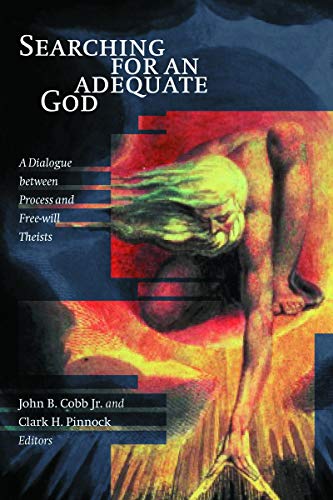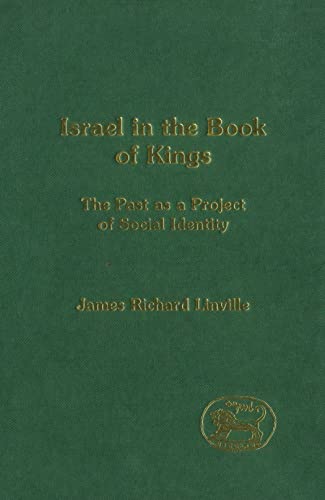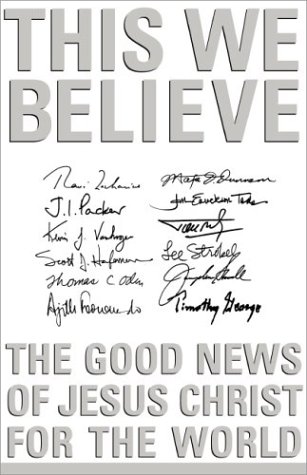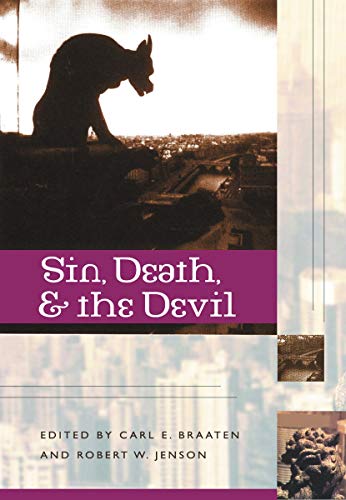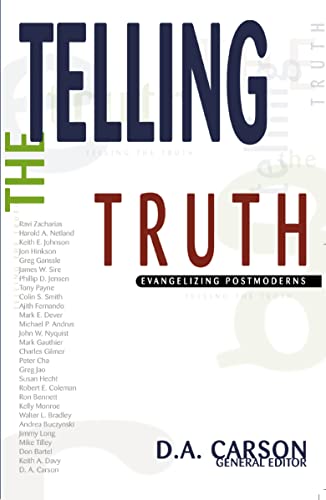Searching for an Adequate God
Written by John B. Cobb Jr and Clark H. Pinnock (Eds) Reviewed By Gerald BrayThis book is subtitled ‘a dialogue between process and free will theists’ most of whom appear to live in California and to have come from conservative religious backgrounds. Autobiographical information of this sort is normally relatively unimportant, but in this symposium it becomes highly significant. Not only do several of the contributors dwell at length on their journey away from evangelical orthodoxy, but others remark on the unusually personal nature of their colleagues’ theology! Some readers may find this irritating, but in many ways it is a refreshing trait. Most theologians write from a standpoint of personal commitment to one view or another, but leave their readers to guess why they think the way they do. In this book all is revealed, and the reader can decide for himself how much weight should be given to points of view which spring from an individual spiritual journey.
The contributors are meant to be a mixture of ‘free will’ theists, of whom Clark Pinnock is probably the best known, and process thinkers (‘theists’ or theologians’ is an awkward way to describe them), and the brief introduction sets out both positions extremely clearly. As Clark Pinnock says on page x:
We both insist that God is love and therefore filled with compassion and sensitivity. We do not believe that God determines the course of events unilaterally. We believe that the future is open and that some kinds of change even belong to the divine perfection and are not alien to it. We believe that God not only affects creatures but that creatures affect God. We both think that God suffers when things go badly for creatures. We both hold to the reality of libertarian freedom and consequently we both recognise that genuine evils exist. Both models are impressive ways to get at important things we both care a lot about.
Having laid the groundwork so eloquently, the book goes on to develop different aspects of the subjects mentioned, and brings out certain differences between process and free will thinkers. For example, the latter are more likely to believe in the reality of life after death, and to express their beliefs using more obviously Christian language than the former do. Indeed, the outside reader may be confused by the fact that many of the ‘free will’ contributors describe themselves as ‘evangelicals’, even as they make it clear that they distance themselves from the Evangelical mainstream. David Wheeler, pastor of the First Baptist Church of Los Angeles, appears to be in a category all his own. He calls himself an ‘evangelical’, but one who thinks that the insights of process/relational thought have a great deal to offer him in his ministry! Whose side is he on, or is that question appropriate?
The book tends to be a series of reflective essays rather than a systematic presentation of two broadly defined positions, which makes it difficult to say who stands for what. About all that can be said for certain is that every one of the contributors is opposed to ‘classical theism’, though unfortunately that option is neither defined nor represented in the symposium. Calvinism apparently qualifies for this opprobrium, but as the few references to it caricature its approach (by claiming, for example, that it holds that God is the creator of evil), it must be doubted whether the authors of the symposium really know what they have rejected. Time and again, the orthodox reader longs to say that the problems raised by them were answered centuries ago by the elaboration of the all-important distinction between ‘person’ and ‘essence’ which allowed Christian theology to triumph over the false dilemmas posed by the dualistic philosophies of antiquity, and to proclaim the sovereign and omnipotent personal God of the Bible.
When looking at free will or process thought, the traditional believer is struck most of all by the lack of humility that both sides display in their approach to God. As the book’s title says, they are looking for a God who is ‘adequate’, by which they mean a God who satisfies their own moral and philosophical demands. But the mind of a sovereign God cannot be contained by any human scheme, however noble it may be. His thoughts are higher than our thoughts, and the problem of evil (in particular) has defied human solution since the days of Job and beyond. Why do evil and suffering exist in a world controlled by an omnipotent and absolutely good being? We do not know the answer to this—all we can say is that the God who made us also sent his Son to take our suffering upon himself and pay the price for the sin and evil which we have brought into the world. We also know that if we trust in him, he will protect us against the effects of whatever evil may befall us in this life, and take us to dwell with him in eternity. It may not be much to offer the philosophers, but to others it is the bread of life. Is there anything more ‘adequate’ than that?
Gerald Bray
Gerald Bray is research professor of divinity at Beeson Divinity School in Birmingham, Alabama, where he teaches history and doctrine. He is a minister in the Church of England and the editor of the Anglican theological journal Churchman.


